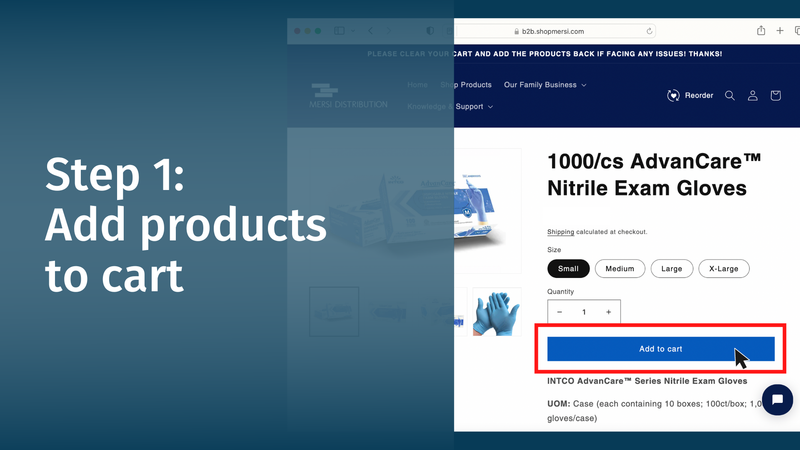
AQL, or Acceptable Quality Limit, is a quality standard for gloves that every glove buyer should know about. To our surprise, it is not often that we are asked about the AQL of the gloves we sell - usually just from large healthcare organizations with very well-informed clinical officers. Regardless, AQL is something we do our best to bring to the attention of our customers. While there are a number of important ways to evaluate the quality of a glove, including thickness, durability, grade (exam vs. non-exam), and so forth, AQL seems to be the forgotten child that not many people talk about.
What is AQL?
AQL is an internationally recognized quality standard for gloves that measures the number of pinholes found in a lot of disposable gloves that a manufacturer produces. Specifically, it is the percentage of pinholes per batch of 100 gloves. If you buy gloves regularly, you may have heard the term 'freedom from holes' - that's exactly what AQL is all about.
You're probably wondering why there are holes in gloves, anyway. Firstly, they are tiny pinholes and very difficult, if not impossible, to spot with the naked eye. Nevertheless, too many of them can cause a glove to leak - indicating poor quality.
It is a globally accepted fact that no glove can ever be 100% free from pinholes. During the manufacturing process, gloves are made by dipping formers (a former is an object cut in the shape of a glove) into raw material such as NBR or PVC (NBR to make nitrile gloves and PVC commonly to make vinyl gloves). This dipping action results in air bubbles rising from the liquid and while most reach the surface and disperse, some attach to the former - creating a thin spot that can turn into a pinhole. This is why testing for pinholes is necessary.
AQL testing is one of the steps in the quality control process derived from the American Society for Testing and Materials (ASTM) and regulated by the U.S. Food & Drug Administration (FDA).
AQL Scores & What They Mean

The most common AQL scores of disposable gloves in the US are 4.0, 2.5, 1.5 and 0.65. The lower the AQL score, the fewer the pinholes and the higher the quality of the glove.
- Gloves with an AQL score of 3.0 - 4.0 are best suited for industrial use.
- Per ASTM D6319 standards, a glove must meet an AQL score of 2.5 to be considered 'exam' or 'medical' grade (both terms mean the same thing). The FDA, according to 21CFR800.20, sets the same AQL standard for exam grade gloves.
- For a glove to be considered 'surgical', i.e. a step above exam/medical, the AQL score must be at least 1.5.
- For gloves to be cleared for use with chemotherapy drugs ('chemo rated'), they are subjected to even stricter standard according to ASTM D6978-05.
- Gloves with an AQL score of 0.65 are considered to meet the very highest quality standard.
It is also worth mentioning that different AQL scores can be established for critical, major, and minor defects. Manufacturers will usually provide AQL scores for each of these types of defects. Here are what they each mean:
- Critical defects - totally unacceptable to all stakeholders (end user, regulatory, etc.)
- Major defects - unacceptable to end user
- Minor defects - product not fully compliant with specifications but the issues are not serious to the end user
Below is the specification table of Synguard Exam Grade Nitrile Gloves, a popular exam grade nitrile glove brand in the market.

INTCO Medical, the world-renowned manufacturer of Synguard, provides both the 'Water Test AQL' score and the 'Appearance AQL' scores. As suggested by their names, the former is a test for whether water leaks from the glove (due to many pinholes/poor quality) and the latter is a test for the presence of pinholes across different categories of defects. A water test, or water leak test, is conducted by pouring water into a glove and observing it for a few minutes to see if any water leaks. An appearance test is a cosmetic check for pinholes. As noted previously, an AQL of 1.5 is required for a glove to be considered 'surgical'. Synguard is rated 1.5 in both the water test and the appearance test (critical). In terms of major defects in the appearance test, Synguard's AQL is 2.5, which meets both the ASTM and FDA standards established for 'exam/medical grade' gloves.
AQL - In Summary
In summary:
- AQL is the number/percentage of pinholes per batch of 100 gloves produced by a manufacturer. The lower the number, the higher the quality.
- For medical applications, ensure your gloves is at or lower than an AQL of 2.5 (per ASTM/FDA standards). For surgical gloves, the AQL must be 1.5 or lower.
- AQL can be tested through a water leak test or appearance test.
If you would like help analyzing the AQL of your gloves, we offer a FREE AQL consultation service. Call (800) 654-0186 or email info@mersidistribution.com with your glove's Manufacturer Part Number (MPN) or brand name and we will take care of you.




